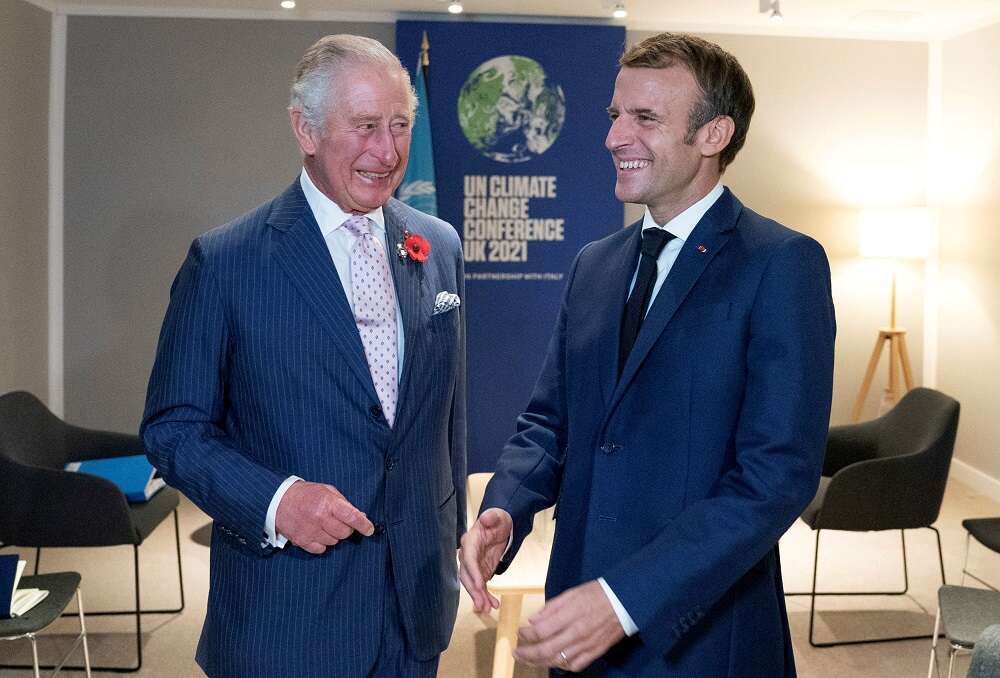
King Charles and France’s Macron hope to build on personal bond post-Brexit
By Michel Rose, Elizabeth Pineau and Michael Holden
PARIS (Reuters) -After flames engulfed France’s Notre-Dame cathedral in 2019, Britain’s future King Charles III wrote to President Emmanuel Macron, describing his heartbreak and offering his help and advice on the restoration.
This week, more than four years on, the monarch will tour France on a royal visit and inspect the site of the inferno that stirred memories of the blaze that swept through his own family’s home of Windsor Castle in 1992.
The trip that starts on Wednesday will be filled with many such personal touches and moments of symbolism as Britain and France seek to rebuild ties tested by the bitter and chaotic years of Brexit.
Charles had meant to make France his first royal visit after his coronation, but the March trip was abruptly cancelled by violent French protests over pension reforms, much to Macron’s embarrassment.
On their second attempt, the 74-year-old king and the 45-year-old president will set out to build on a relationship already bolstered by their communications over Notre-Dame and their shared interest in climate and heritage, royal aides said.
Charles and his wife Queen Camilla are scheduled to visit Paris before heading southwest to the vineyards of Bordeaux.
The king, a fluent French speaker like his mother, is keen to walk in the late Queen Elizabeth’s footsteps and is likely to refer to his mother’s deep affection for France, officials said.
Elizabeth visited France 13 times during her reign, more than any other country in Europe, according to Buckingham Palace. On her first official trip in 1957, she had lunch with President René Coty in the Hall of Mirrors of the Palace of Versailles.
The former French royal palace will be back in action on Wednesday night during a state banquet in its famed 17th century gallery, built by the “Sun King” to project the power and majesty of the French monarchy.
The day after that, Charles and Camilla will visit the flower market named after Queen Elizabeth on Paris’ Ile de la Cité.
POMP, PALACES AND CLIMATE TALKS
The warms words and symbolic visits will stand in stark contrast to some of the language exchanged on more political levels in recent years.
Macron’s hardball tactics during the talks to negotiate Britain’s departure from the European Union had prompted angry outbursts by former prime minister Boris Johnson and vitriol in UK tabloids.
Britain’s role in negotiating a security pact between the United States and Australia, torpedoing a multi-billion submarine deal the French had negotiated with Canberra, left Macron seething and brought relations to a new low.
Johnson’s successor as premier, Liz Truss, initially said the jury was out on whether France was a friend or foe, before settling on calling it a friend last year. Her successor, Prime Minister Rishi Sunak, visited France in March to kick off what he called an “entente renewed”.
This week the king and the president will have a face-to-face meeting at the Elysee Palace about the war in Ukraine, the coups in the Sahel and Britain’s upcoming artificial intelligence summit among other issues, French officials said.
“The king is always very interested in the president’s analysis of major international issues,” an Elysee official told Reuters.
They will also have plenty in common when they meet in the Natural History Museum in Paris to discuss global warming.
During the COP climate negotiations in Glasgow in 2021, Macron and the then Prince Charles worked together to raise funds for the Great Green Wall initiative which aimed to plant an 8,000 km band of trees across Africa.
Charles convinced Amazon CEO Jeff Bezos to give $1 billion to the scheme, Macron told Reuters at the time as he raced to his presidential plane on his way back to Paris.
“It’s Prince Charles who made Bezos come,” Macron said. “He is very committed on the environment, and has been for a long time. And he’s a formidable believer in the friendship between France and the UK.”
(Writing by Michel Rose; Editing by Andrew Heavens)


